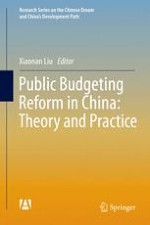2015 | OriginalPaper | Buchkapitel
8. Some Reflection on Participatory Budgeting in China: Minhang District Case Study
verfasst von : Wei Liu
Erschienen in: Public Budgeting Reform in China: Theory and Practice
Verlag: Springer Berlin Heidelberg
Aktivieren Sie unsere intelligente Suche, um passende Fachinhalte oder Patente zu finden.
Wählen Sie Textabschnitte aus um mit Künstlicher Intelligenz passenden Patente zu finden. powered by
Markieren Sie Textabschnitte, um KI-gestützt weitere passende Inhalte zu finden. powered by
